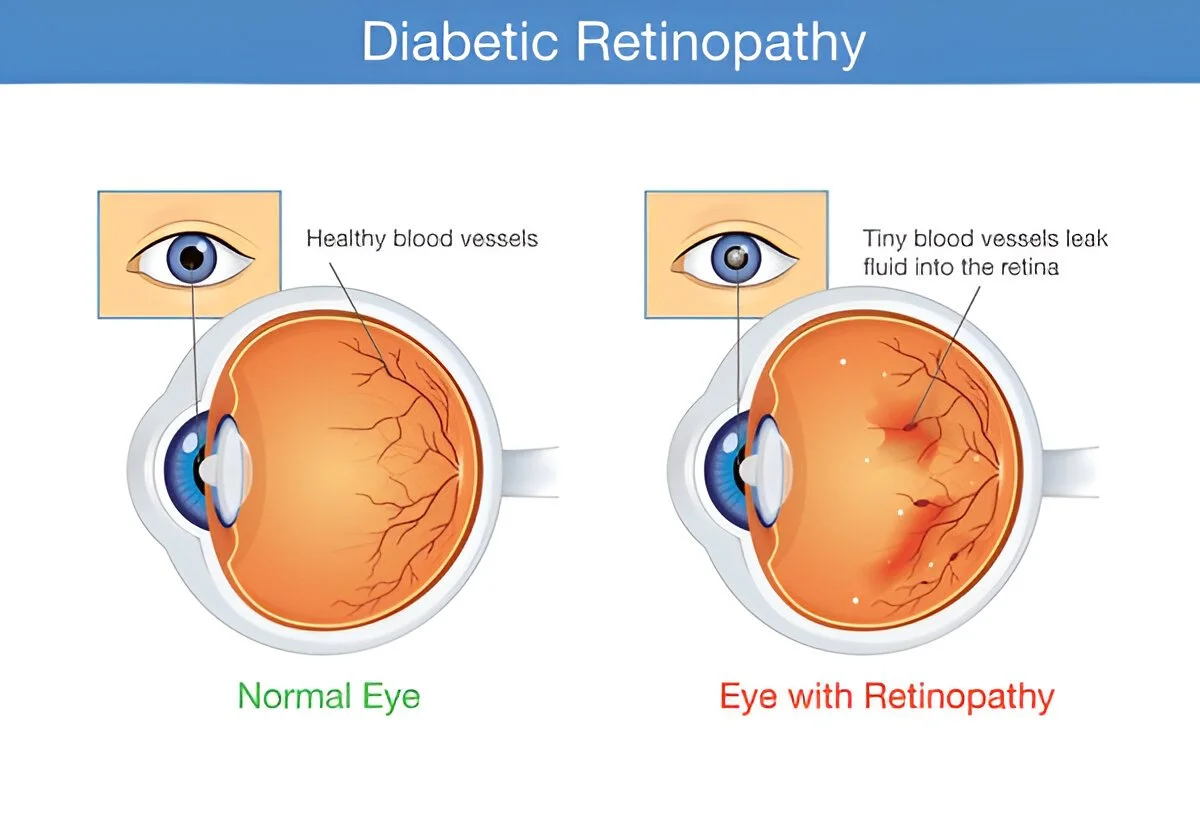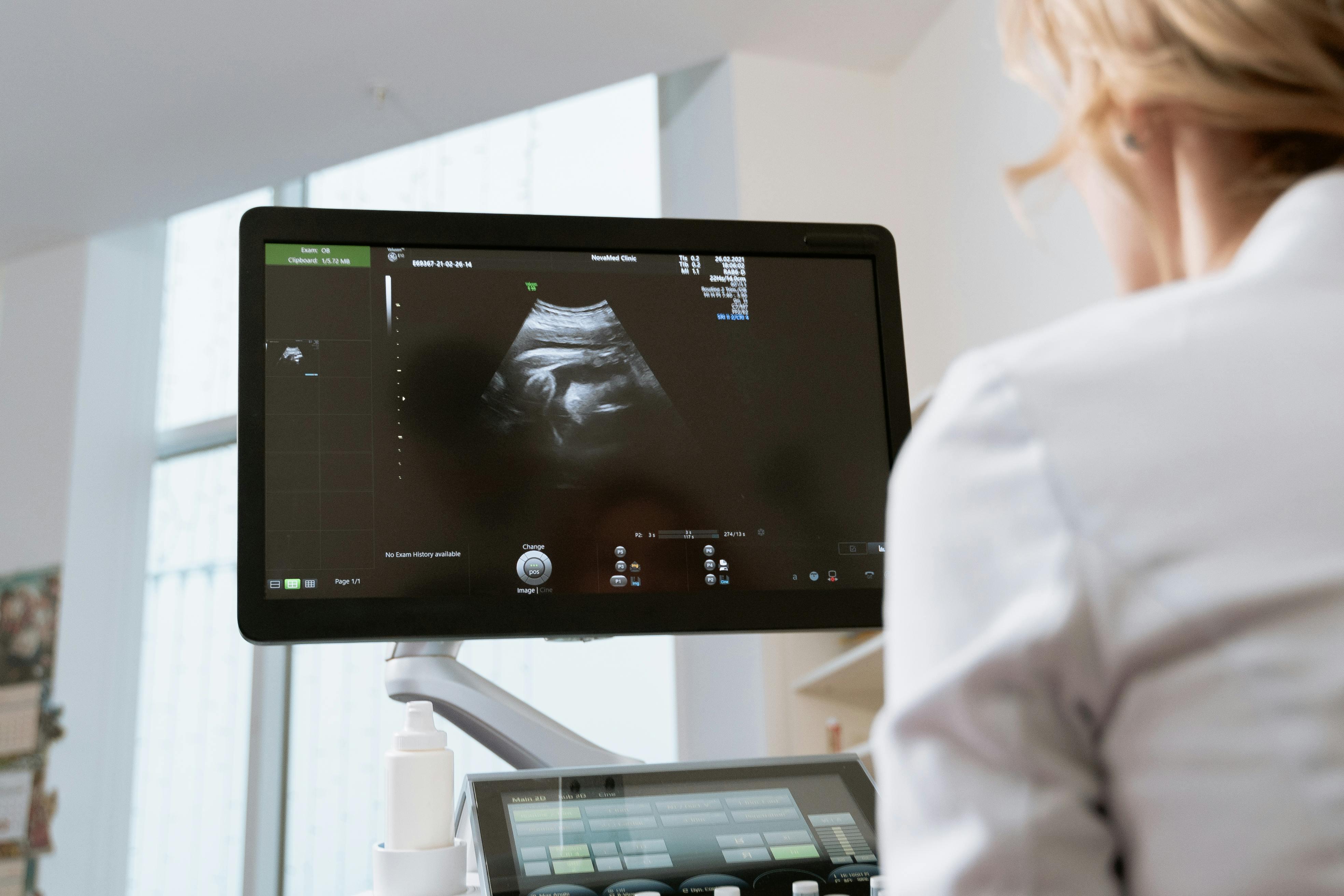Спонсоры
Diabetic Retinopathy Treatment in Dubai: Causes and Solutions

Diabetes can affect more than just your blood sugar levels — it can also impact your vision. One of the most serious eye complications linked to diabetes is diabetic retinopathy, a condition that damages the small blood vessels in the retina. Left untreated, it can lead to vision loss or even blindness.
With modern medical advancements, Diabetic Retinopathy Treatment in Dubai has become safer and more effective than ever. In this article, we’ll explore what diabetic retinopathy is, why it occurs, how it’s diagnosed, and the various treatments available. We’ll also share tips to help you protect your eyes and maintain healthy vision despite living with diabetes.
Understanding Diabetic Retinopathy
The retina is a thin layer of tissue at the back of the eye that senses light and sends images to your brain. When you have diabetes, high blood sugar levels can weaken or damage the tiny blood vessels that nourish the retina. Over time, these vessels may leak fluid or blood, causing vision problems.
Diabetic retinopathy develops slowly, and in its early stages, you might not notice any symptoms. However, as it progresses, it can severely impact your sight. This is why regular eye check-ups are essential for anyone living with diabetes.
Types of Diabetic Retinopathy
There are two main stages of diabetic retinopathy:
1. Non-Proliferative Diabetic Retinopathy (NPDR)
This is the early stage of the disease. In NPDR, the blood vessels in the retina become weak and start leaking small amounts of fluid or blood. This can cause swelling in the retina, known as macular edema, which leads to blurry vision.
At this point, new blood vessels have not yet formed, but the damage is slowly progressing.
2. Proliferative Diabetic Retinopathy (PDR)
This is the advanced stage. When the old blood vessels become too damaged, the body tries to grow new ones. However, these new vessels are fragile and can easily leak blood into the eye, leading to vitreous hemorrhage or even retinal detachment.
If left untreated, PDR can cause severe vision loss or permanent blindness.
Common Causes and Risk Factors
Several factors can increase your risk of developing diabetic retinopathy:
-
Poor blood sugar control: Constantly high glucose levels damage retinal blood vessels.
-
High blood pressure: Adds extra stress on blood vessels in the eyes.
-
High cholesterol levels: Can contribute to blockages and leaks in the retinal vessels.
-
Long-term diabetes: The longer you have diabetes, the higher your risk.
-
Pregnancy: Women with diabetes are at increased risk during pregnancy.
-
Smoking: Reduces blood flow and accelerates vessel damage.
Controlling these risk factors can help slow down or even prevent the onset of diabetic retinopathy.
Symptoms of Diabetic Retinopathy
In the early stages, diabetic retinopathy might not cause noticeable symptoms. However, as it progresses, you may start to notice:
-
Blurred or fluctuating vision
-
Difficulty seeing at night
-
Dark spots or “floaters” in your vision
-
Colors appearing faded or washed out
-
Sudden loss of vision
Because symptoms may appear only after serious damage has occurred, regular eye screenings are crucial for early detection.
Diagnosis of Diabetic Retinopathy
Eye specialists use a variety of tests to detect diabetic retinopathy:
-
Comprehensive Eye Exam: This includes checking your vision and measuring eye pressure.
-
Dilated Eye Exam: Eye drops are used to widen your pupils so the doctor can examine the retina more closely.
-
Fluorescein Angiography: A special dye is injected into your bloodstream to highlight any leaking or blocked blood vessels in the retina.
-
Optical Coherence Tomography (OCT): This imaging test provides detailed cross-sectional images of the retina, helping detect swelling or fluid buildup.
Early diagnosis allows for timely treatment, which can greatly reduce the risk of vision loss.
Treatment Options for Diabetic Retinopathy in Dubai
The good news is that Diabetic Retinopathy Treatment in Dubai has advanced significantly in recent years. The treatment plan depends on the stage and severity of the condition.
1. Controlling Diabetes and Lifestyle Changes
The first and most important step in treatment is controlling your blood sugar, blood pressure, and cholesterol levels. A balanced diet, regular exercise, and quitting smoking can go a long way in preventing further damage to your eyes.
2. Anti-VEGF Injections
In many cases, doctors use medications called anti-VEGF drugs (such as Avastin, Eylea, or Lucentis) to stop the growth of abnormal blood vessels in the retina. These injections are given directly into the eye under local anesthesia and are usually painless.
They help reduce swelling, improve vision, and prevent new blood vessel formation.
3. Laser Treatment (Photocoagulation)
Laser therapy is often used to seal leaking blood vessels or shrink abnormal ones. It’s a quick outpatient procedure that helps stop or slow the progression of the disease.
Although laser treatment may not restore lost vision, it helps prevent further vision loss.
4. Vitrectomy Surgery
If the retina has been severely damaged — for example, by a vitreous hemorrhage or retinal detachment — surgery may be required.
During a vitrectomy, the surgeon removes the blood-filled gel (vitreous) from the center of the eye and replaces it with a clear solution. This allows light to pass through to the retina properly and helps restore vision.
5. Corticosteroid Implants
In some cases, corticosteroid implants are used to reduce inflammation and swelling in the retina. These implants slowly release medication over time, providing long-term relief.
Recovery After Treatment
Recovery depends on the type of treatment you receive:
-
After injections or laser therapy, you may experience slight discomfort or blurry vision for a few hours or days.
-
After vitrectomy surgery, it may take several weeks for your vision to stabilize.
-
Regular follow-up visits are necessary to monitor progress and ensure no new problems develop.
During recovery, maintaining good diabetes control and following your doctor’s advice is essential for long-term eye health.
Preventing Diabetic Retinopathy
Although diabetic retinopathy can’t always be prevented, you can significantly lower your risk by adopting healthy habits:
-
Manage blood sugar levels: Regular monitoring and medication compliance help prevent retinal damage.
-
Control blood pressure and cholesterol: Maintain a heart-healthy lifestyle to protect your blood vessels.
-
Have regular eye check-ups: Even if you have no symptoms, schedule annual eye exams.
-
Quit smoking: Smoking worsens circulation and increases your risk of eye diseases.
-
Eat a balanced diet: Include vegetables, whole grains, lean proteins, and foods rich in antioxidants.
-
Exercise regularly: Physical activity helps regulate blood sugar and improve overall health.
Why Early Treatment Matters
Many people ignore the early signs of diabetic retinopathy because their vision seems fine. However, once the disease progresses to an advanced stage, treatment becomes more complex and less effective.
Early detection can prevent irreversible damage. That’s why people with diabetes should never skip routine eye exams — even if their vision seems normal.
Diabetic Retinopathy Treatment in Dubai: Advanced Care and Technology
Dubai is home to several world-class eye care centers that use advanced imaging and surgical technologies for accurate diagnosis and effective treatment. From laser-based procedures to minimally invasive surgeries, eye specialists in Dubai provide personalized care based on each patient’s needs.
Patients benefit from:
-
High-end diagnostic equipment
-
Skilled ophthalmologists with experience in diabetic eye diseases
-
Access to the latest medications and surgical tools
-
Comfortable, patient-centered care in modern facilities
With timely treatment and proper diabetes management, most patients can preserve their vision and maintain a good quality of life.
Living with Diabetes: Protecting Your Eyes Long-Term
Managing diabetic retinopathy is not just about medical treatments — it’s also about taking daily care of your health. Regular eye exams, healthy eating, and lifestyle adjustments can help you keep your vision clear for years.
Remember, every step you take to control diabetes also protects your eyes. If you ever notice changes in your vision, even minor ones, visit an eye specialist immediately.
Conclusion
Diabetic retinopathy is a serious but manageable condition. With early detection, proper medical care, and lifestyle control, vision loss can often be prevented. Modern Diabetic Retinopathy Treatment in Dubai offers patients access to advanced techniques that can stop the disease from progressing and, in many cases, restore clarity of vision.
Under the care of experienced ophthalmologists like Dr. Mandeep Lamba, patients receive precise diagnosis, effective treatment, and personalized care plans to protect their sight.




